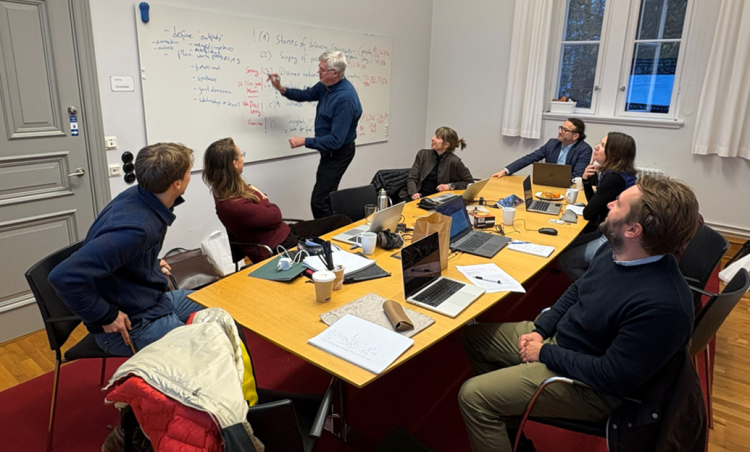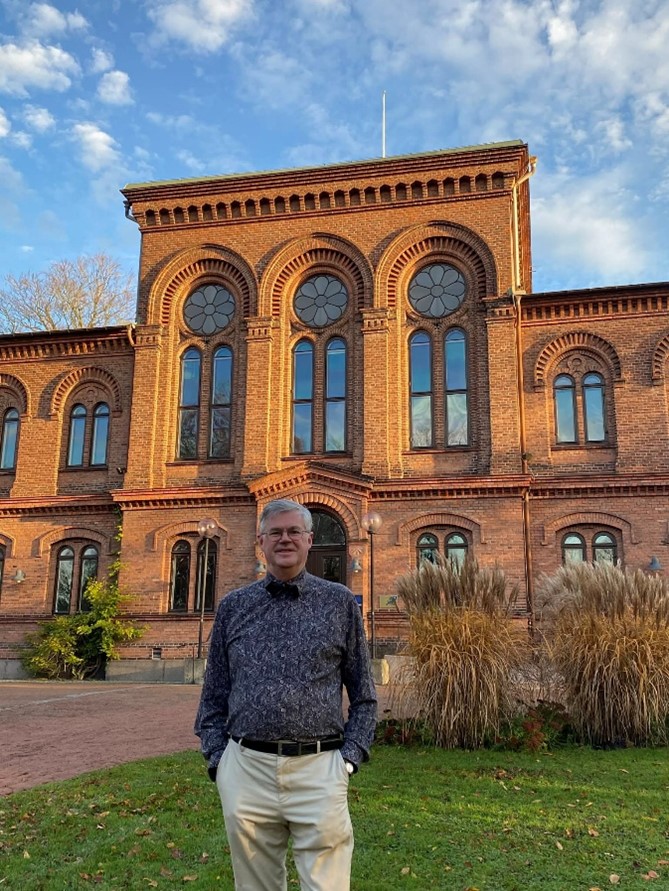Professor Stephen Wyatt of the École de foresterie of the Université de Moncton, campus d'Edmundston (UMCE), in Canada has just spent two weeks in Lund, Sweden as a visiting researcher on the Theme "Let's talk about Swedish forests". In Sweden, as in Canada, public debates about forest management are becoming increasingly polarised, as groups move further apart, and arguments deepen the divides instead of reconciling them. Professor Wyatt notes "There are both similarities and differences between Sweden and Canada. This research can help us understand the causes and processes of polarisation in both countries, while also helping us to find solutions that will work for Canada".

Professor Wyatt (standing) with the "Let's talk about Swedish forests" group at Pufendorf IAS.
The project is led by Professor Fariborz Zelli, a political scientist at Lund University, and supported by the Pufendorf Institute of Advanced Studies, which focuses on interdisciplinary innovation. Professor Zelli emphasises the advantages of this approach "Our team includes researchers in psychology, politics, forestry, geography, environment and climate change, as well as internationally renowned experts such as professors Wyatt (Canada), Kleinschmitt (Germany) and Cashore (Singapore). These diverse theoretical frameworks and perspectives allow us to explore innovative ways of promoting convergence instead of divergence".

Professor Wyatt at the Pufendorf Institute, Lund, Sweden.
For Professor Wyatt, the interdisciplinarity of the Pufendorf model is at the heart of this experience. "A typical day at Pufendorf will see teams meeting on subjects such as the future of health systems, neurotechnologies, and sustainable agriculture, alongside our team on forestry. It is a space where disciplines meet to explore new and original ideas for future research and to imagine innovative solutions to key issues of our society".













